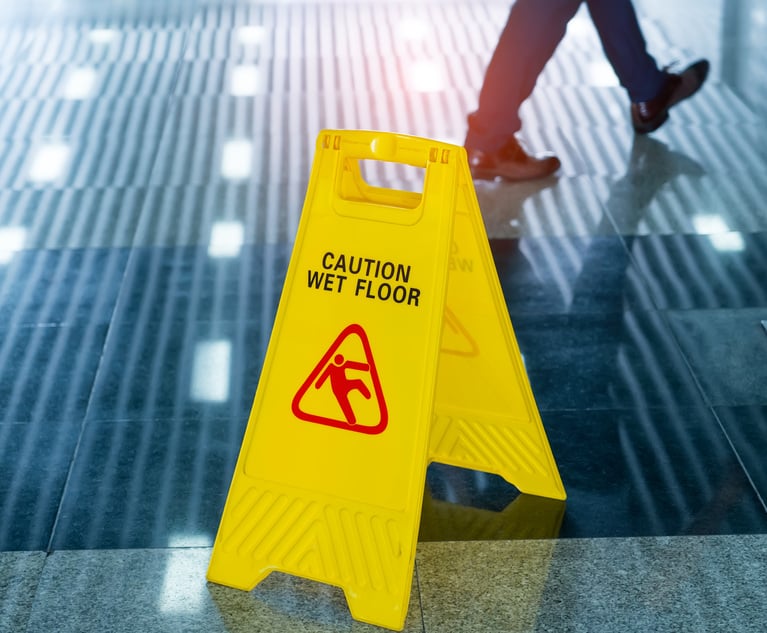The Fearless Forecaster has resurfaced for his annual predictions for the upcoming year in the field of labor and employment law. Gazing into his crystal ball reveals a number of strong candidates for 2024, and the overall theme emerging for the new year is technology.
Advances in technology have already impacted the practice of law but, in case you are wondering, this article was written by the author and not some artificial intelligence (AI) such as ChatGPT. Surely, as we started to see in 2023, attorneys this year will rely more and more upon AI to help draft pleadings, write briefs and for a variety of other tasks, but attorneys better check legal citations, as AI has been caught creating non-existent case law to write a persuasive brief. That said, and in no particular order, here are the most likely top 10 hot topics in labor and employment law for 2024.
- Employee Monitoring and Privacy: Employee monitoring is not something new. It has been around for some time as has the enabling technology. For example, for years, businesses that employ truckers to haul their products have relied upon software such as Drive-Cam to monitor their driving habits and view accidents. A similar technology comes standard in all Tesla vehicles. In the past, when negotiating collective bargaining agreements (CBAs), labor unions often opposed and challenged Drive-Cam’s use as it is a mandatory subject of bargaining because it affects health and safety. It is now more widely accepted. With advances in computer technology, my old-fashioned crystal ball shows that there will be an uptick in employers monitoring their workforces, and this will likely lead to employee privacy complaints, especially considering that a greater percentage of employees now work remotely.
- Remote/Telework: The pandemic greatly impacted how we work. Let’s face it, after the pandemic eased, many more employees continued to work remotely than initially were expected, and many employers refused to compel attendance in person. This will prompt a rise in various labor and employment issues in 2024. It will be dealt with when negotiating CBAs, when employers draft personnel policies, and when they try to protect data and other confidential information.
- Behavioral Health and Intermittent Leave: The subject of mental health has become less taboo. It also has become more prevalent in society post-pandemic. The prediction here is that this will continue to be something employers deal with on a more regular basis in 2024 under the various leave and paid disability laws, the Americans with Disabilities Act, and the New Jersey Law Against Discrimination.
- Temporary Employees: A major event in 2023 that did not garner as much attention as it deserved was the passage of the Temporary Workers’ Bill of Rights, which was signed by Gov. Phil Murphy on Feb. 6, 2023 and went into effect in mid-2023. While the law does not apply to all temporary worker positions, it applies to many, including food preparation and serving related occupations, building and grounds cleaning and maintenance workers, construction laborers and helpers, installation, maintenance and repair positions, and transportation and material moving jobs. The most striking requirement of this new law, that surely will result in claims this year, is its provision that covered workers be paid the same average rate of pay as permanent employees of the third-party clients who perform the same or substantially similar work for their employers. The law permits civil suits against both temp agencies and their third-party clients.
- Sick Leave: While not seen in the Fearless Forecaster’s crystal ball, he has it from one of the New Jersey Department of Labor’s (NJDOL) highest authorities that the NJDOL in 2024 will crack down on violations of New Jersey’s Sick Leave Law. Employers must make sure that they are complying with their recordkeeping obligations concerning paid sick leave. See N.J.S.A. 34:11D-1 et seq.
- Independent Contractors and the Gig Economy: A “gig economy” references a labor market characterized by the prevalence of short-term contracts or freelance work as opposed to permanent jobs. As noted above, a major change in New Jersey law in 2023 gave a significant boost to temporary workers (see Point 4, supra). In that same vein, in 2024, it is anticipated that the NJDOL and the federal USDOL in 2024 will continue to crack down on businesses that misclassify employees as independent contractors.
- Equal Pay: While the Diane B. Allen Equal Pay Act, N.J.S.A. 10:5-12(t), has been on the books since 2018, we expect an uptick on the number of these claims in 2024. This act requires employers to pay those in protected categories comparably to those not in that protected category for substantially similar work. We also expect to see more decisional laws helping employers better understand their obligations thereunder.
- Age Discrimination: The last of the baby-boomers are reaching retirement age, yet, due to COVID and its financial impact on certain industries, many baby-boomers simply cannot afford to retire or are unwilling to do so. Should there be a slowdown in the economy in 2024 (something even the Fearless Forecaster cannot predict or he would have retired many years ago) and subsequent layoffs, expect a large increase in charges of age discrimination being filed with the New Jersey Division of Civil Rights and the United States Equal Employment Opportunity Commission, as well as more age discrimination lawsuits.
- Sexual Harassment: As the Fearless Forecaster repeatedly predicted in prior years and was proven correct, he is not going out on a limb to again suggest that, so long as there are men and women or, for that matter, people of different sexual orientations, working together, whether in an office or factory setting, there will be sexual harassment; 2024 will be no different.
- Spoliation and Fraudulent Concealment: While spoliation and fraudulent concealment of evidence are not limited to employment litigation, these claims are more likely to occur in such matters considering the breadth of discovery needed to prove discrimination, harassment, whistleblowing and the like. Predictive coding-driven document review technology has improved, and a search-term-driven methodology has become standard practice in e-discovery. That even straightforward litigation involving modest damages now requires reviewing texts, phone calls, WhatsApp, emails and the like, spoliation claims should increase in 2024. It is, therefore, imperative that attorneys send “litigation hold” letters to adverse parties and their own clients in every lawsuit.


 Crystal Ball
Crystal Ball




